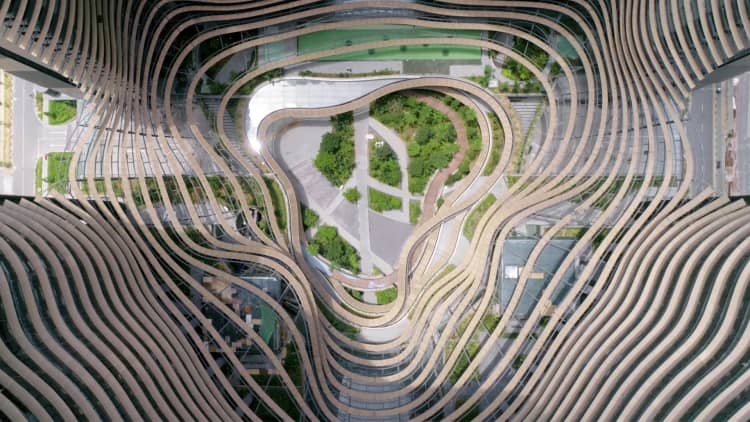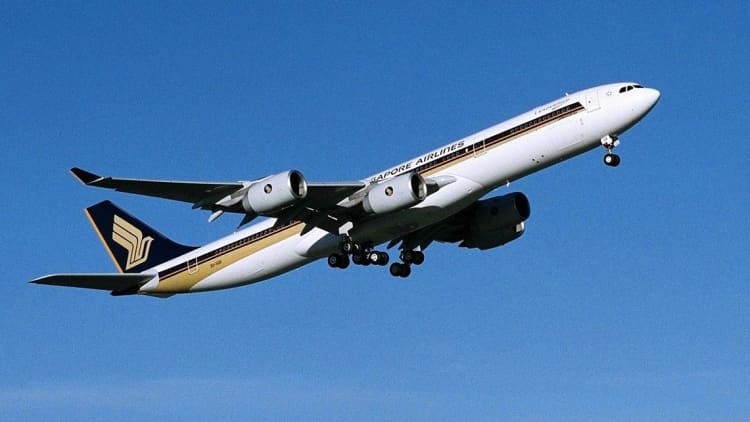Singapore's political opposition does not have a strong track record.
The city-state, which celebrated its 53rd birthday this month, has been governed by one political entity, the People's Action Party, since independence. In that time, the former trading outpost has been transformed into an advanced economy — a success story that bolsters the PAP in every election.
Singapore is home to multiple opposition parties, with eight to nine regularly contesting general elections. But poorly defined policies, a dearth of public engagement, and disunity have stymied their performance for decades.
Now, following a shock election result in neighboring Malaysia, opposition parties say they're trying to change that.
Seven parties held a meeting late last month to discuss banding together to contest the next election, which is due by 2021. If a coalition were formed, it would still be unlikely to upset the PAP by then. The near-term goal is targeting the PAP's two-thirds parliamentary majority, so the ruling party can no longer easily change the nation's constitution, opposition leaders told CNBC.
"The current lack of debate in parliament is unhealthy," said Goh Meng Seng, secretary general of three-year-old opposition group, the People's Power Party. "There needs to be more diversity of opinions in decision-making processes, — if there isn't a strong contest of ideas, parliament sittings won't be taken seriously."

Helmed by Prime Minister Lee Hsien Loong, the eldest son of Singapore's founding father Lee Kuan Yew, the PAP controls 83 seats in the 89-strong parliament. The remaining six are under the country's largest opposition faction, the Workers' Party, whose performance in the 2011 election saw the PAP's vote share drop to its lowest-ever level at 60.1 percent. But then in 2015, the PAP saw its margin strengthen to 69.9 percent, boosted by a wave of nostalgia from Lee Kuan Yew's death that year as well as government spending around the country's golden jubilee anniversary, such as extra financial support for senior citizens' healthcare.
Because of its parliamentary majority, the PAP can easily change laws. In late 2016, it modified eligibility criteria for presidential candidates to ensure representation for minority ethnic groups, which resulted in only one candidate qualifying for the 2017 presidential election.
"The weakness of individual parties has prevented any meaningful inroads into the political system, so we're realizing that we can no longer go at it alone," said Chee Soon Juan, leader of the Singapore Democratic Party, a 38-year-old opposition faction that hosted July's meeting.
The Prime Minister's Office didn't respond to CNBC's request for comment.
Asked to comment on a possible opposition coalition and Singapore's political future, a PAP spokesperson referred CNBC to Education Minister Ong Ke Yung's views on one-party rule. The minister told a conference last year that the island isn't big enough for parties to hold drastically different views on national issues, according to a report in the Straits Times.
While previous attempts at coalition-building have failed, there is a sense of cautious optimism this time around.
July's meeting came on the heels of Malaysia's election in May, which saw an opposition coalition defeat a party that had ruled for more than 60 years. That was particularly inspiring, said Goh: "Malaysia and Singapore are so similar in terms of culture, racial mix and mentality so their change in government was a real eye-opener."
Biggest opposition party didn't participate
Even if opposition parties are able to unite — a tall order given their disparate interests — it's not certain how successful they would be.
The Workers' Party, seen as the most realistic alternative to the PAP, didn't attend July's meeting, leading to speculation that it may not be interested in a coalition. It declined to be interviewed for this story.
With or without the Workers' Party, however, any opposition coalition faces obstacles.
For one, rules restricting freedom of expression and public assemblies have limited the opposition's engagement with the public. Individuals and media organizations that criticize the government or judiciary have faced civil defamation lawsuits and other restrictions from the government, according to a 2017 report from Human Rights Watch.
Opposition leaders blame the government for hindering their respective parties, but some experts say it's not that simple.
So far, parties have simply been no match for the PAP in terms of policy or the caliber of candidates, according to Eugene Tan, associate professor of law at Singapore Management University.
Most groups except for the Workers' Party "tend to go into political hibernation in between general elections," he said. "Opposition unity is also threadbare, and the ability to pool resources is not their forte either."
A deep-rooted fear of disruption associated with a change of government, or what local author Cherian George describes as "the politics of comfort," also obstructs opposition growth.
While many Singaporeans, including millennials, aren't particularly loyal to the PAP itself, they worry that no other party is capable of steering the economy and continuing the island's world-class standard of living. To the layperson, a vote for the opposition is often perceived as a threat to their material comfort.
"Many people assume we're opposing the success of this country, but that's not at all the case — we simply want to be a meaningful alternative so people have a meaningful choice," said Chee.
Poorly defined policies are another major criticism of the opposition. Excluding the Workers Party and the SDP, most party websites lack detailed blueprints on hot-button issues such as health care, housing and population growth.
Analysts also caution against any knock-on effects from Malaysia, noting that the opposition's climb to power there was primarily achieved thanks to widespread backlash over former leader Najib Razak — a vastly different context to Singapore.
Rising costs
The island may lack a strong wave of anti-government sentiment, but discontent about rising prices and doubts over the PAP's future leadership could work in the opposition's favor.
Despite its electoral mandate, the PAP has been criticized by many citizens for a 30 percent increase in water prices and this year's 16.8 percent increase in electricity tariffs. The country's goods and services tax is also expected to hit 9 percent, from 7 percent currently.
The matter is exacerbated by entrenched perceptions of inequality. A government report released earlier this year revealed a slower pace of income growth for the bottom 50 percent households, contributing to a widening gap between rich and poor. A sizable program of transfers, subsidies and assistance exist for low-income Singaporeans, but social imbalances remain.

In her 2018 book "This Is What Inequality Looks Like," local sociologist Teo You Yenn examined structures of inequality that are less obvious. For example, subsidies for purchasing public housing apartments are mostly granted to married couples, making it tougher for unwed and single parents who tend to be more economically vulnerable, she pointed out.
According to Goh of the People's Power Party, public dissatisfaction with PAP policies, especially housing and retirement, will lead to the ruling party losing power within 15 years.
Most Singaporeans have used the maximum amount of their mandatory retirement savings plan allowed for housing purchases, which has compromised their retirement financing, he explained. Many citizens, he added, can only sustain retirement by monetizing their housing investments, but even that is tricky.
"Within 15 years, nearly 60-70 percent of (public housing apartments) will be 40-50 years old, and it will be difficult to sell them since banks turn cautious on loans to new buyers when flats hit the 40-year mark," Goh stated.
The PAP did not respond to criticism of its housing and retirement policies.

